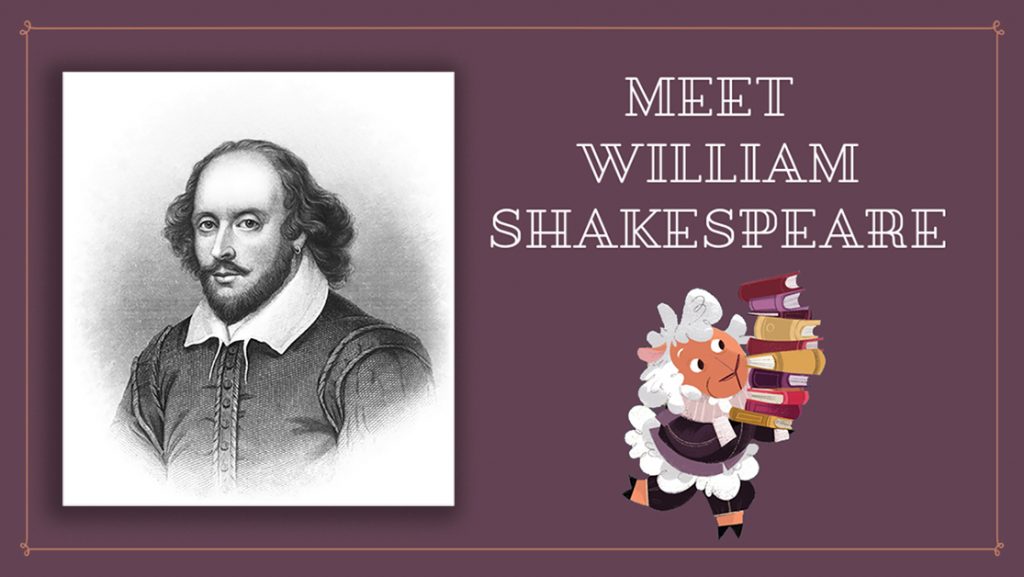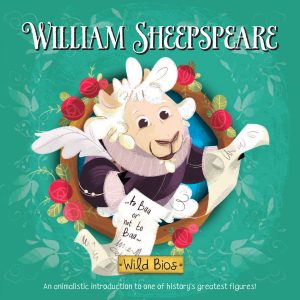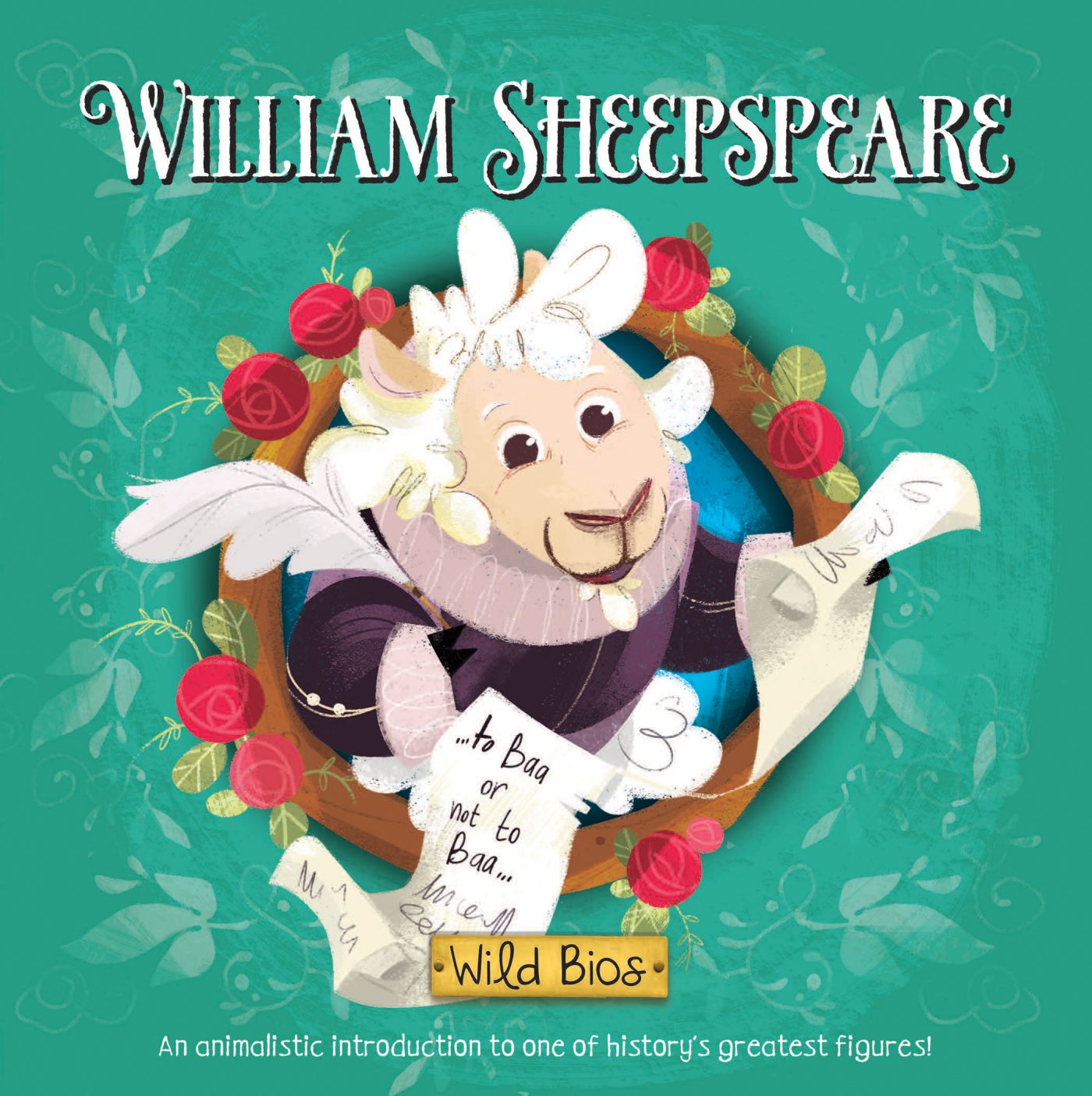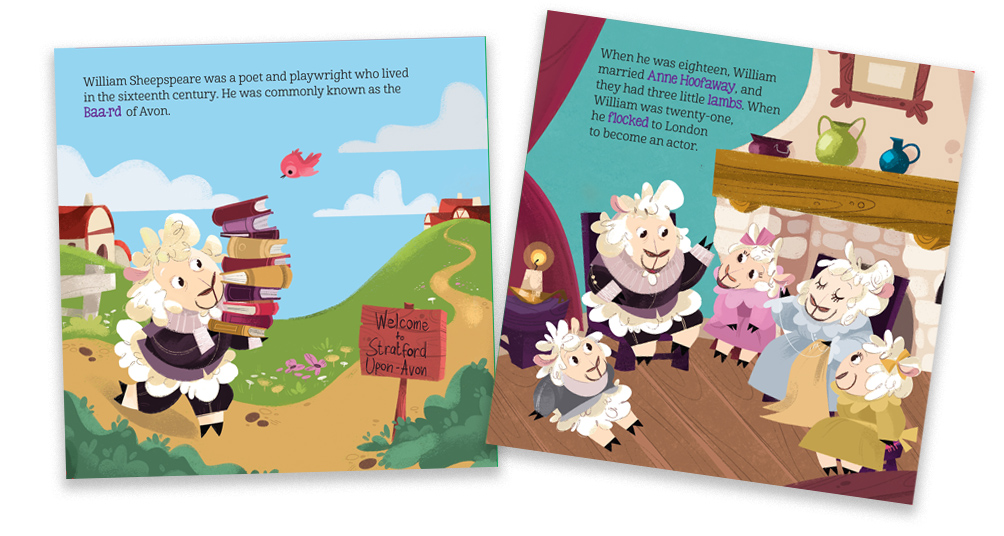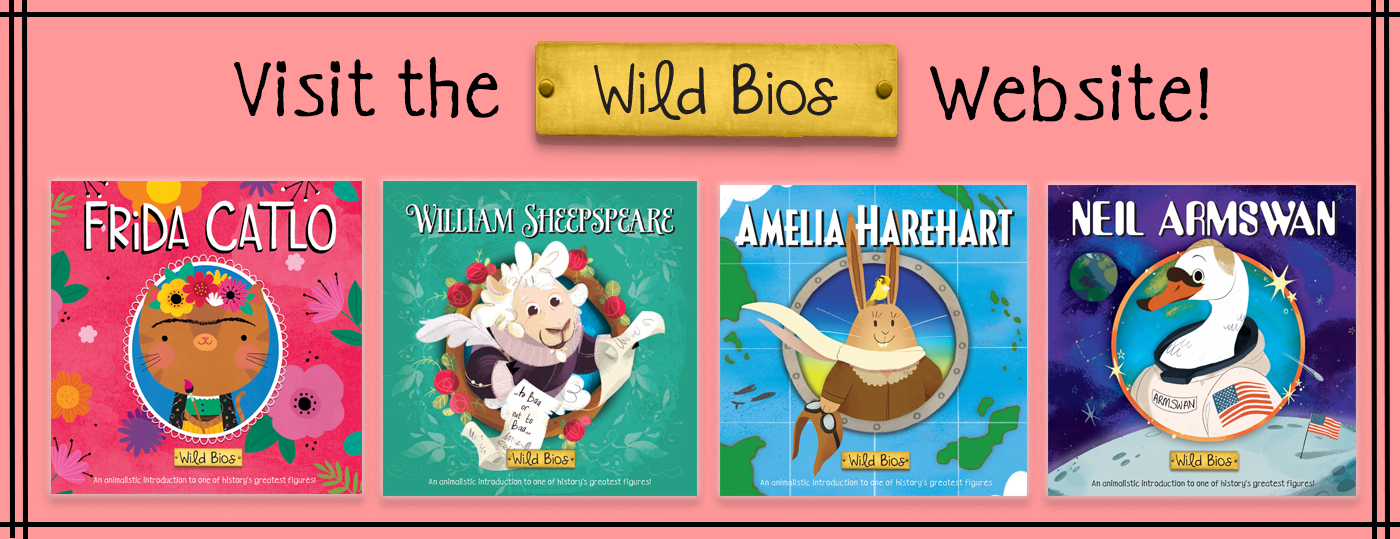It’s never too early to share the great works with your kids. Silver Dolphin’s new series, Wild Bios, are board books for pre-readers all about history and art’s luminaries, reimagined as cute and furry animals. In honor of one of our subjects, William Sheepspeare, here are some fascinating facts about the inspiration, master playwright William Shakespeare!
What's In a Name?
Spelling words in English language wasn’t as codified and universal in Shakespeare’s era (the late 15th and early 16th centuries) as it is today. The playwright even spelled his name a number of different ways, including Shakespe, Shakspere, and Shakespeare.
His Birthday's a Mystery!
There’s actually no record of the day Shakespeare was born. However, he was baptized in his family’s local church on April 26, 1564, and it was custom for babies to receive that sacrament when they were three days old. That puts the Bard’s birthday as April 23, 1564. (Not so fun fact: He died on that same day in 1616.)
Let’s Get Personal.
In 1582, Shakespeare married a woman eight years his senior named Anne Hathaway. And six months later their first child, Susanna was born. Twins Judith and Hamnet (not Hamlet) followed two years later.
Wordsmith
The works of Shakespeare contain more than 2,000 first uses of words in the English language. In other words, he invented and/or popularized a literal ton of words, such as swagger, lonely, unaware, excellent, assassination, and countless. He even created the name Jessica for The Merchant of Venice (1596).
Innovations and Inspirations
While Shakespeare was a wildly inventive writer, many of his non-historical plays are based on pre-existing works by other, famous playwrights of the day…but the Bard’s were so good they overshadowed those inspirations. Ancient Greek historian Plutarch wrote Life of Mark Antony, Shakespeare’s main source for Antony and Cleopatra, and Romeo and Juliet owe a lot to the 1562 narrative poem The Tragical History of Romeus and Juliet by Arthur Brooke.
Lost in Translation
Shakespeare’s works speak so universally to the human condition that those plays have been translated to dozens of languages…including Klingon, the fictional alien language from Star Trek. Not all of the meter and wordplay quite translates, but it is neat to hear the frill romantic talk of Much Ado About Nothing rendered in the angry, throaty language of a violent alien culture.
Out of This World
There are 27 moons that orbit the planet Uranus, and 25 of them have names that reference Shakespeare. For example, Titania, Oberon, and Puck are also all characters in A Midsummer Night’s Dream, and Miranda, caliban, Prospero, Trinculo, and Francisco can be found in space as well as in The Tempest.
Double-Life
While he entertained scores of Londoners with his troupe, the King’s Men, and his theater, the Globe, Shakespeare frequently traveled back and forth to his home in Stratford-upon-Avon, a distance of about 100 miles. There, he led a completely separate and equally successful life as a landlord.
Birdman
In 1890, an American Shakespeare super-fan named Eugene Schiffelin set out to import into the U.S. every species of bird mentioned in a Shakespeare play. Indeed, he released two flocks totaling 60 starlings into New York’s Central Park. All 200 million starlings flying in American skies today—and which are considered an invasive species—descend from the birds that came over in that ill-advised Shakespearean tribute.
Wild Bios: William Sheepspeare
Meet one of history’s greatest figures in this adorable board book with an animal twist! Dive into the life of the eloquent Baa-rd of Avon and the plays that shaped our language today. William Sheepspeare’s human themes have resonated with every generation. With hilarious puns and colorful illustrations, this book brings his legacy to life for babies and parents alike!







